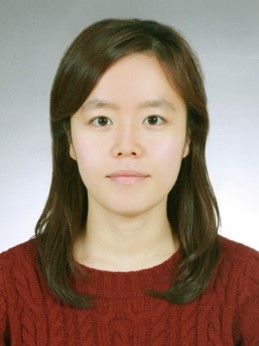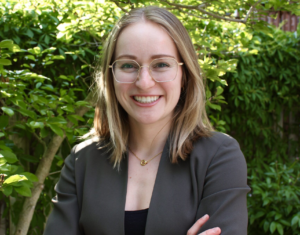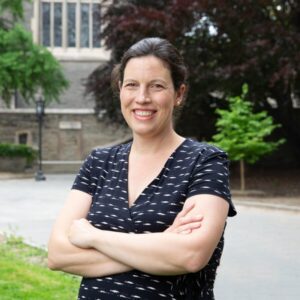In an impressive display of academic excellence, three trainees from the Population Health Analytics Lab have garnered prestigious recognitions and awards for their groundbreaking research. Gum-Ryeong Park, Gemma Postill, and Ingrid Giesinger have each made significant contributions to the field of population health, addressing critical issues such as housing impacts on health, social determinants of health, and environmental health strategies. Their innovative work not only advances scientific understanding but also holds promise for shaping effective public health policies and improving community well-being.
Please read below for more information from trainees about their award, research and plans for the award.
Gum-Ryeong Park
Congratulations to Population Health Analytics Lab member Gum-Ryeong Park on receiving the SMART Healthy Cities Training Platform Award! This prestigious award highlights Gum-Ryeong’s dedication and innovative contributions to the field of population health. Continue reading to learn more about the award and Gum-Ryeong’s perspective on receiving this honor.

What is your program and year of study?
After completing my Ph.D. at McMaster in 2023, I joined this lab as a postdoctoral fellow. I am currently collaborating with lab members on CIHR research projects related to housing and mortality, as well as the National Flourishing Survey. These projects aim to uncover critical insights into how various social determinants impact health outcomes.
Can you tell me a little bit about the SMART Healthy Cities Training Platform and your plans for the award?
The SMART Healthy Cities Training Platform prepares researchers to make Canadian cities healthier and more resilient, focusing on the role of food systems in improving population health through implementation science. With this award, I plan to advance my research on housing inequalities in Canadian metropolitan areas, exploring how housing crises impact health and mortality. The training will enhance my ability to design and implement real-world interventions, while collaboration with experts across fields will deepen my understanding of urban health issues. This award will be key in bridging research and practice, contributing to healthier cities through evidence-based urban policy.
What was your reaction to receiving the SMART Heathy Cities Platform Training Award?
I was thrilled to receive the SMART Healthy Cities Platform Training Award. It’s a significant recognition of my work in linking housing crises with population health, and it reinforces my commitment to understanding how urban environments impact well-being. This award will provide me with invaluable opportunities to deepen my expertise in implementation science, collaborate with leading scholars, and ultimately contribute to healthier cities.
Looking Ahead
The entire Population Health Analytics Lab team is incredibly excited about the potential research outcomes from Gum-Ryeong’s work. We look forward to the innovative solutions and insights that will emerge, contributing to healthier and more resilient cities. This award not only recognizes Gum-Ryeong’s achievements but also energizes our collective efforts to advance population health research.
Gemma Postill
Congratulations to Population Health Analytics Lab member Gemma Postill on receiving the AI4PH Training Platform Award! This prestigious award highlights Gemma’s dedication and innovative contributions to the field of population health. Continue reading to learn more about the award and perspective on receiving this honor.

What is your program and year of study?
I am an MD/PhD Student studying clinical epidemiology at the University of Toronto. I am in her fourth year of the program having completed two years of medicine and is now in her second year of PhD studies. My thesis uses population health data and machine learning to improve the ability of older adults to remain at home in the long-term following traumatic injuries.
Can you tell me a little bit about the AI4PH Training Platform Award and your plans for the award?
AI4PH Training Platform Award recognizes and supports trainees leading research at the intersection of AI and public health. During the tenure of the award, I will leverage artificial intelligence to (1) investigate how pre-injury health influences the long-term independence of older adults, (2) determine when long-term outcomes can be predicted, and (3) identify which regions have poorer long-term outcomes. Our findings can be used to eliminate differences in trauma care at the patient-level by informing clinicians and at the policy level by preventing poor post-injury outcomes and prioritization of regions for improvement. I look forward to presenting on these finding at the AI4PH conference in Winnipeg (July 2025).
What was your reaction to receiving the Award?
I am thrilled to have won this award particularly given the impact AI4PH had already made and their values as an organization. AI4PH has focused on building capacity in AI and big data skills for transformative change, doing so through creating conversations between research, government, and industry about what is sustainable, equitable, and impactful AI. If you haven’t read their “Artificial Intelligence to Advance Public Health in Canada” report, I highly recommend it!
Ingrid Giesinger
Congratulations to Population Health Analytics Lab member Ingrid Giesinger on receiving the AI4PH 2024-2025 Scholar! Continue reading to learn more about the award and Ingrid’s perspective on receiving this honor.

Can you tell me a little bit about the research award from the Artificial Intelligence for Public Health and Health Equity Trainee Scholarship Program?
I am honoured to have my research award from the Artificial Intelligence for Public Health and Health Equity Trainee Scholarship Program renewed. This opportunity is instrumental in advancing my work at the intersection of health, equity, and machine learning. My research aims to capture the latent structure among multiple social determinants of health and understand their synergistic effects on multimorbidity.
Collaborating with fellow AI4PH scholars and receiving support from the AI4PH community advisory board members and mentors enhances my ability to pursue transformative research that addresses upstream inequities in social determinants of health. This award not only acknowledges the relevance of my current work but also empowers me to expand my impact through the AI4PH network.
I am grateful for the continued opportunity to contribute to and benefit from AI4PH’s mission, and I am proud to be a part of the collective effort to leverage AI and machine learning to advance health equity.
